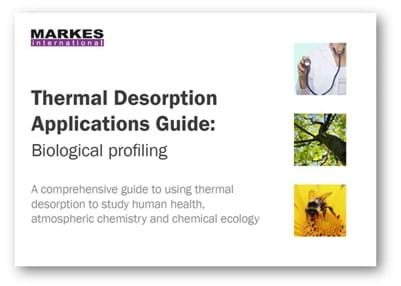
Thermal Desorption Applications Guide: Biological profiling
A comprehensive guide to using thermal desorption to study human health, atmospheric chemistry and chemical ecology
 Human health
Human health
The study of volatile chemicals from humans has recently attracted increasing attention, particularly regarding the potential of breath volatiles to rapidly and non-invasively diagnose diseases such as cancer.
Ecosystems and the atmosphere
Biogenic volatile organic compounds (BVOCs) contribute substantially to atmospheric concentrations globally, and understanding the factors involved in their release is vital for accurate atmospheric modelling.
Chemical ecology
Many species use volatile chemicals to influence other organisms. This can simply involve the release of volatiles from plants to attract pollinators, or far more complex interactions involving multiple species.
In this Applications Guide, we describe how thermal desorption (TD) is being applied to advanced research into each of the above areas – covering everything from the effect of stress on breath VOC profiles to the ecological role of herbivore-induced plant volatiles.




